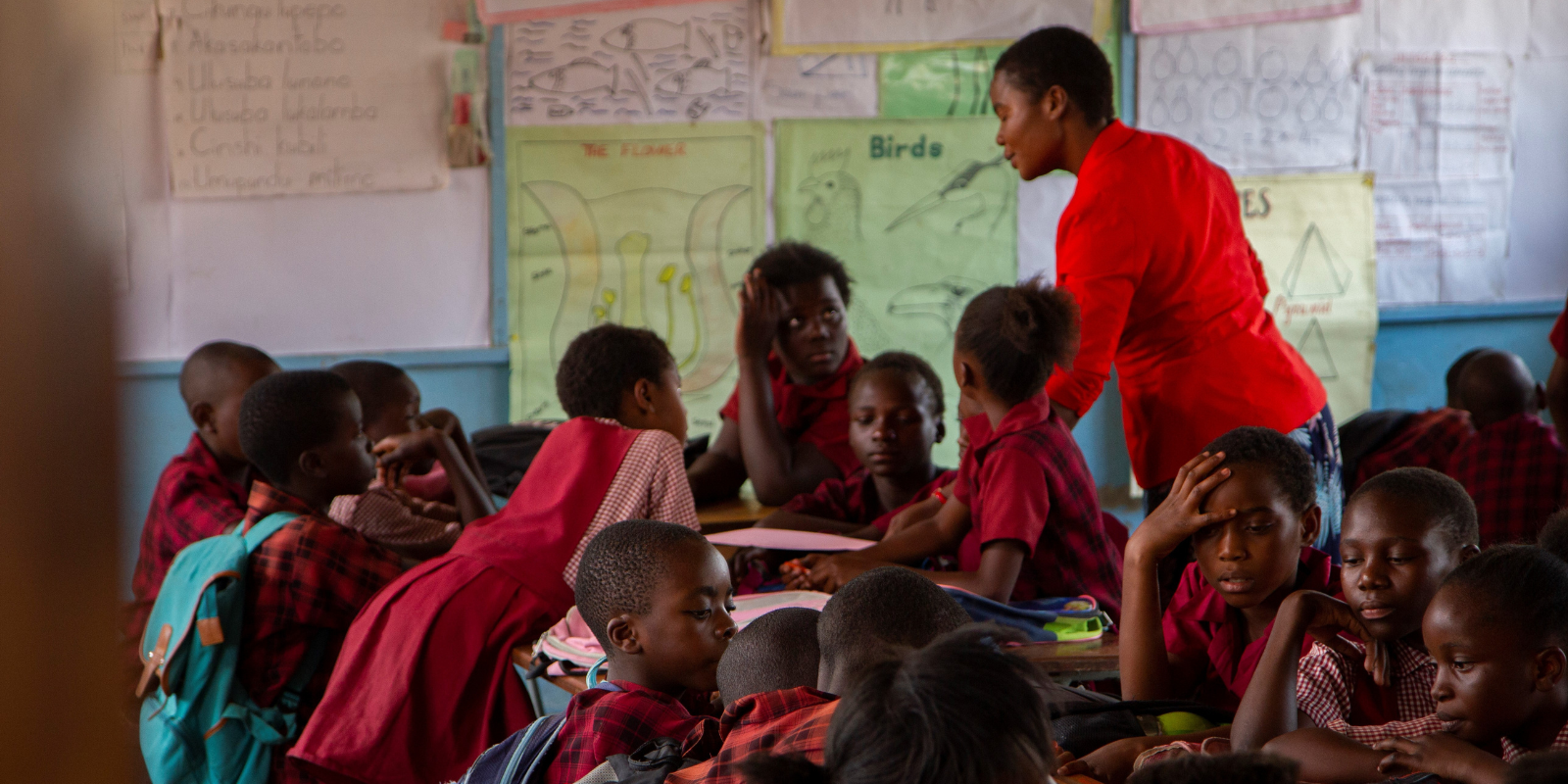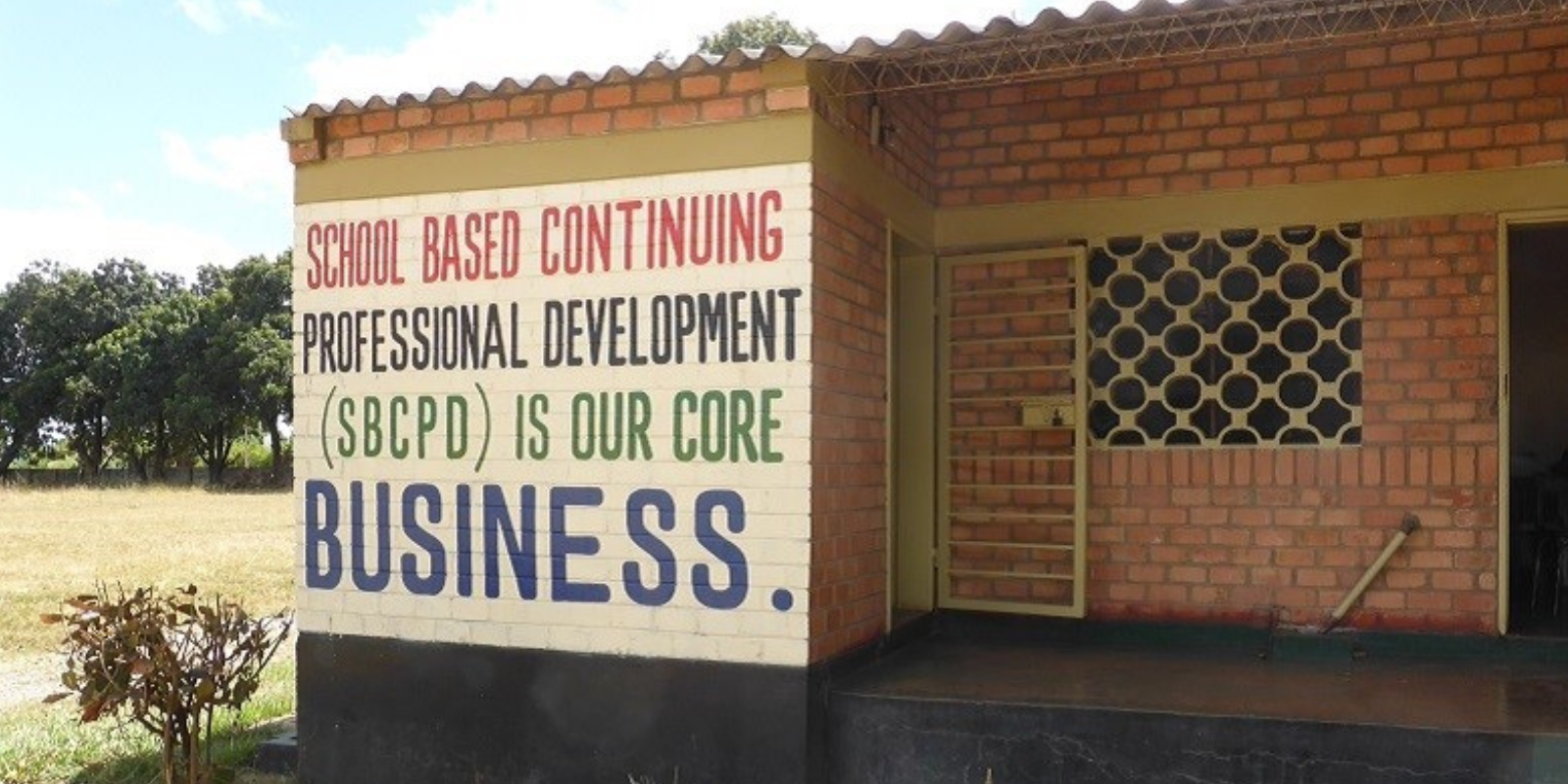
Open University
The Open University’s Teacher Education in Sub-Saharan Africa programme (TESSA) was awarded a Prize in 2009; since it was founded the project has supported over two million teachers across the region.
An Alumni Story: Dr Kris Stutchbury and Olivier Biard
Since 2005, The Open University’s Teacher Education in Sub-Saharan Africa programme (TESSA) has supported over two million teachers across the region. Its bank of open, curriculum-linked, multi-language educational resources has been developed in partnership with 14 African higher education institutions and other organisations – and in 2009 the project won a Queen Elizabeth Prize for Education. Principal Investigator Dr Kris Stutchbury and Senior project Manager Olivier Biard explain the impact of the Prize.
Olivier: The University had previously won a Queen Elizabeth Prize for Education in 1996 for an innovative distance learning Post-Graduate Certificate in Education (PGCE) that bought a diverse range of teachers into the profession. Winning really helped to put a spotlight on that work, and generated a great deal of international interest.
Kris: Professor Bob Moon ran the PGCE, and the Prize generated invitations to visit international partners, including in Africa. At the same time, the open educational resources movement was starting to take off. Bob brought these two things together in 2005 and from there TESSA was born.


Kris: I joined TESSA in 2009, the year we won. It was a very big deal for the University, and from our African partners the enthusiasm and joy was incredible. Five representatives from the OU went to the Palace for the ceremony, alongside teachers from Ghana, Kenya, Nigeria, South Africa and Sudan. The teachers also spent a week with us, preparing for and running a seminar at the University, and they thoroughly enjoyed the experience, going to the Palace looking magnificent in their national dress.
Professor Martin Bean had only just arrived at the University as Vice Chancellor and one of the first things he got to do was meet The Queen! I think it showed him the value of our work, and he was always very supportive of our international development work.

Olivier: When we talk about the wider impact of the Prize, I think it really thrust our research, partnerships and international development work into focus. It highlighted how these things could play a key role in delivering the University’s strategic priorities while also having a hugely positive impact in the world.
And just three years later, we launched TESS India – a £9m programme with the UK Government around teacher training in India.
Kris: When you win an award like this, it gives you an impetus to keep going – and it gives you leverage.
As well as TESS India, it helped us to set up TESSA Secondary science, which came shortly after the Prize. It enabled us to put together a group of senior people in the institutions we were partnering with, and that was critical. You need people in positions of influence for a project like this to work.
In 2012, again not long after winning the Prize, we secured core funding for TESSA. That funding then led to £1.8m from the Scottish Government for a significant project in Zambia that has reached over 5000 teachers and improved the quality of teaching.

Olivier: With this sort of work, you have to take a long view. Impact doesn’t happen in a couple of years. There can be days when you ask yourself, why are we doing this? There are so many competing pressures.
That’s what makes this Prize so important: it values long-term effort. Winning helps you see the importance of what you’re doing and motivates you to keep going.
Kris: And in a huge institution like the OU, it raises the profile of your work and galvanises support of colleagues and partners. Having something that makes the decision makers notice your area of work is actually very significant.
Ultimately, it gives you the confidence, the resolve and the networks to keep doing what you’re doing, to learn from it, and to do better.
This year, we’re celebrating TESSA’s 20th anniversary and in the context of the UN’s Sustainable Development Goal 4 is more relevant than ever. It’s wonderful to see how the educational resources have been integrated into courses locally and the impact they’re continuing to have across the continent.
